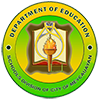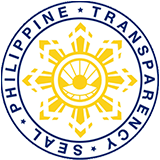Financial literacy is a vital life skill essential for improving the financial management of people from all walks of life. It is increasingly important for investors and every individual who earns, spends, and receives money. It is becoming a fundamental factor for families trying to balance the budget, buy a house, finance children’s education, and ensure savings for the future and after retirement.
The famous statement “Live within your means”, tells the importance of knowing basic personal finance such as having a budget and practicing another way around, to live below our means. The increasing debt level and lending of individuals are quite alarming nowadays. People’s consumption and spending tend to be greater than what they have or receive. This greatly affects the financial aspect of individuals and their personal and social well-being as well.
The Republic Act No. 4760, also known as Magna Carta for Public School Teachers stated that:
“It is hereby declared to be the policy of this Act to promote and improve the social and economic status of public school teachers, their living and working conditions, their terms of employment and career prospects in order that they may compare favorably with existing opportunities in other walks of life, attract and retain in the teaching profession more people with the proper qualifications, it being recognized that advance in education depends on the qualifications and ability of the teaching staff and that education is an essential factor in the economic growth of the nation as a productive investment of vital importance.”
Financial well-being ensured by financial literacy promotes financial security. Teachers are believed to be good at financial management. Salary seemed to be not a guarantee for financial freedom. It should be managed with the right knowledge, behavior, and attitude – the core principles of financial literacy. This will enable us to be strategic in making plans and decisions in life. As teachers, while doing our passion for teaching, we must not forget the reality in life that money is a vital necessity of the family, and the salary of a teacher may not cover all the needs of the family.
A modified spending plan from the 50-30-20 budgeting rule (Warren and Tyagi, 2006) was created to help in budget planning. This shows that 50% of the monthly net pay must be allotted for essential expenses such as food, mortgage, rent, utilities, clothing, education, transportation, and other needs like communications, prescription over-the-counter (OTC) medication and food supplements, house helpers, and homeowners association fee (HOA). Annual recurring expenses which are part of other needs included in essential expenses can be allotted a monthly slice of the budget to complete the needed amount such as property taxes and renewing license fees. The 20% will be for financial priorities including savings, retirement, business, debt repayment, and emergency fund. An emergency fund is added based on the results of the interview with the teacher-informants. This is to avoid using the savings which are not intended for unexpected expenses that might be experienced by the teachers.
The other 20% is intended for lifestyle expenses like dining out, shopping, vacation, entertainment, and other wants such as pet care, personal care, and memberships like gym, country club, and cable subscription. The remaining 10% is for giving priorities, which include tithes, gifts/donations, and offerings for the church and other related activities.
This modified spending plan aims to open additional means and guides to address the financial woes of people from all walks of life. Alignment of budget planning with this spending plan may improve the financial management of everyone, and in the long run, will help to contribute to better economic growth and development of the nation.
CINDY D. OLIVA
Education Program Supervisor


